María A. Blasco
Spanish National Cancer Research Center
Spain
(Virtual speaker)
EMBO | EMBL Symposium
This conference will take place at EMBL Heidelberg, with the option to attend virtually.
“Time stands still for no one” or for no molecule, for that matter. Of the molecules that undergo changes over time, it is chromosomal alterations that may have some of the most profound and long-lasting cellular and organismal effects. In contrast to any other macromolecule, the genome is irreplaceable and requires constant repair. Despite sophisticated genome maintenance mechanisms, DNA damage accumulates over time and hence with age. The ensuing chromosomal alterations may lead to genome instability, somatic mutations, impaired gene expression and DNA replication, alterations of the epigenetic code and chromatin structure. These molecular processes can impair cell function and alter cell fate thus contributing to disease, tissue and organ dysfunction thus driving the ageing process of the organism.
Therefore, to promote lifelong health it is critical to gain a better understanding of how DNA damage contributes to the ageing process and age-related disease. Similarly, it will be vital to understand how the regulation of DNA repair and genome maintenance changes over the course of ageing. Finally, we need to consider how time-dependent DNA alterations can impinge in gene expression and chromatin structure. Together, a more complete understanding of these interactions will open doors for therapeutic interventions aimed to promote healthy ageing.
This symposium brings together a diverse group of researchers using a breadth of experimental model systems and organisms with a focus on genome maintenance, from DNA repair to chromatin regulation. We hope that by looking at the genome maintenance specifically in the context of ageing, we will gain insights into how chromosomal defects can be avoided, or even repaired during the aging process to ensure optimal cellular function and to promote lifelong health.
.
Please see EMBL’s COVID-19 safety recommendations if attending the on-site event.
Spanish National Cancer Research Center
Spain
(Virtual speaker)
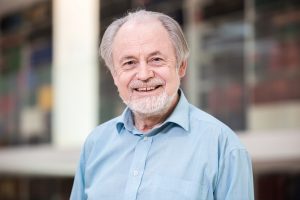
Erasmus Medical Center, Princess Maxima Center for Pediatric Oncology, The Netherlands; University of Cologne, Germany
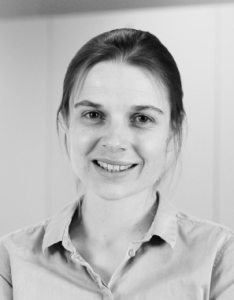
EPFL
Switzerland
(Virtual speaker)
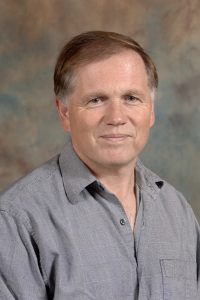
University of Copenhagen
Denmark
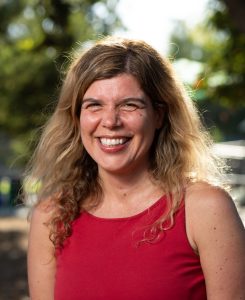
Stanford University
USA
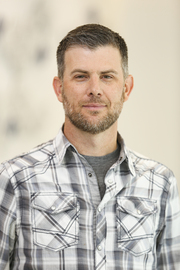
Children’s Medical Research Institute / University of Sydney
Australia
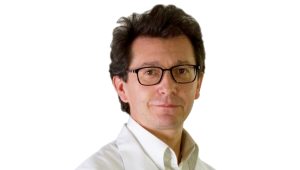
IFOM ETS-The AIRC Institute of Molecular Oncology, IGM, CNR-Centro Nazionale delle Ricerche,
Italy
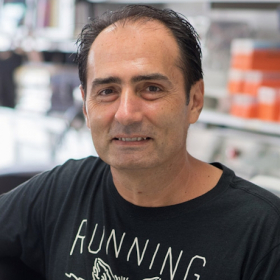
Foundation of Research and Technology – Hellas and the University of Crete
Greece
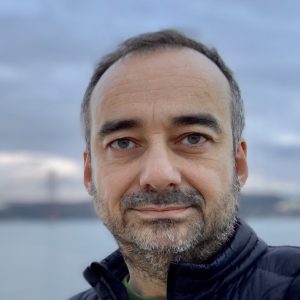
Institute for Research on Cancer and Aging of Nice
France
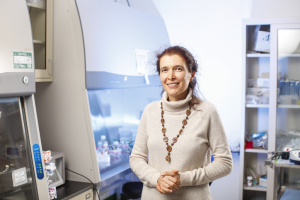
University of Rochester
USA
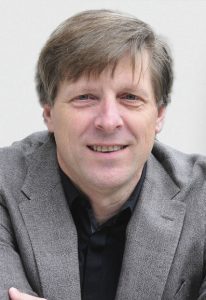
National University of Singapore
Singapore

Karolinska Institutet
Sweden
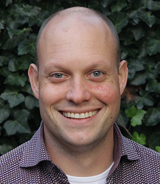
Leiden University Medical Center
The Netherlands
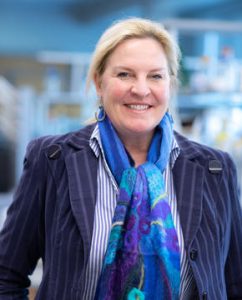
University of Minnesota
USA
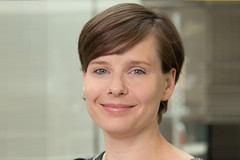
Max Planck Institute for Biology of Aging
Germany
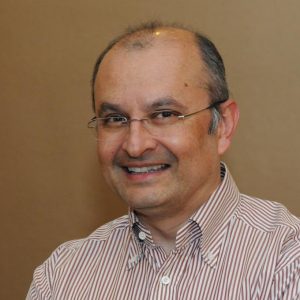
University of Oxford
UK
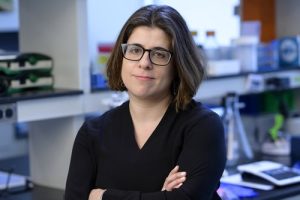
Sloan Kettering Institute, MSKCC
USA
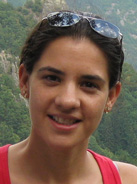
Ben-Gurion University of the Negev
Israel
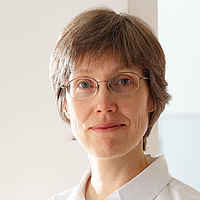
Institute of Molecular Biology
Germany
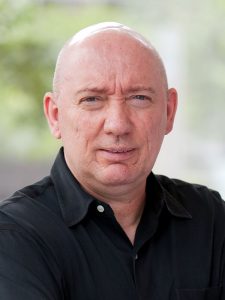
Albert Einstein College of Medicine
USA

The Netherlands Cancer Institute
The Netherlands
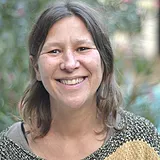
CBI CNRS, University of Toulouse
France
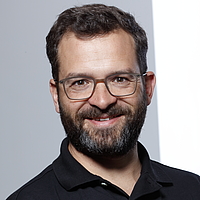
Johannes Gutenberg University and Institute of Molecular Biology
Germany
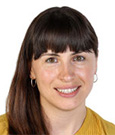
EMBL Heidelberg
Germany
Got something to say? Tweet it! #EESAgeing
Please find the poster listing here.
| Time (Europe/Berlin) | Speaker |
| 11:45 – 13:15 | Registration and light refreshments |
| 13:15 – 13:30 | Opening remarks |
| 13:30 – 14:30 | Keynote lecture: DNA damage repair: understanding aging and nutritional applications for medicine in general Jan Hoeijmakers – Erasmus Medical Center, Princess Maxima Center for Pediatric Oncology, The Netherlands; University of Cologne, Germany |
| 14:30 – 18:00 | Session 1 Chair: Björn Schumacher – University of Cologne Germany |
| 14:30 – 15:00 | Molecular mechanisms in transcription-coupled DNA repair Martijn Luijsterburg – Leiden University Medical Center, The Netherlands |
| 15:00 – 15:15 | The Yin-Yang sides of retrotransposons in aging and related pathologies: from deleterious to target and tools for antiaging and tissue regeneration Valerio Orlando – King Abdullah University of Science and Technology (KAUST), Saudi Arabia Not available on demand |
| 15:15 – 15:30 | Changes in DNA double-strand break repair during aging correlate with increased genomic mutations Jennifer Cobb – University of Victoria, Canada |
| 15:30 – 16:00 | Coffee Break and Meet the Speakers |
| 16:00 – 16:30 | Sensing DNA as a danger signal through the cGAS-STING pathway Andrea Ablasser – EPFL, Switzerland (Remote speaker) |
| 16:30 – 16:45 | The DREAM complex functions as master regulator of somatic DNA repair capacities Arturo Bujarrabal-Dueso – University of Cologne, Germany |
| 16:45 – 17:00 | DBF4-Dependent Kinase (DDK) promotes resection of DNA double stand breaks and repair via homologous recombination Boris Pfander, German Aerospace Center (DLR) – Germany |
| 17:00 – 17:30 | The dynamic network of DSB in chromatin Deborah Toiber – Ben-Gurion University of the Negev Israel |
| 17:30 – 18:30 | Speed Networking |
| 18:30 – 20:00 | Dinner |
| 20:00 – 22:00 | After dinner drinks |
| Time (Europe/Berlin) | Speaker |
| 09:00 – 12:00 | Session 2 Chair: Gaelle Legube – Université Paul Sabatier France |
| 09:00 – 09:30 | DNA repair and anti-cancer mechanisms in the longest-living mammal: the bowhead whale Vera Gorbunova – University of Rochester, USA |
| 09:30 – 09:45 | The FIGNL1-interacting protein C1orf112 is synthetic lethal with PICH and mediates RAD51 retention on chromatin Marcel van Vugt – University of Groningen, The Netherlands Not available on demand |
| 09:45 – 10:00 | Post-transcriptional characterization of the vertebrate aging brain shed insight on the origin of protein/transcript decoupling Domenico Di Fraia – Leibniz Institute on Aging – Fritz Lipmann Institute (FLI), Germany Not available on demand |
| 10:00 – 10:30 | Translating Longevity: Interventions and Diagnostics Brian Kennedy – National University of Singapore, Singapore |
| 10:30 – 11:00 | Coffee Break and Meet the Speakers |
| 11:00 – 11:30 | cGAS-STING is required for senescence and aging in telomerase deficient zebrafish Miguel Godinho Ferreira – Institute for Research on Cancer and Aging of Nice, France |
| 11:30 – 11:45 | Characterization of epigenetic changes and genome integrity in arrested and aging oocytes across female lifespan Michael Klutstein – The Hebrew University of Jerusalem, Israel |
| 11:45 – 12:00 | Aging-associated changes in transcriptional elongation influence longevity Andreas Beyer – University of Cologne, Germany |
| 12:00 – 13:30 | Lunch |
| 13:30 – 16:45 | Session 3 Chair: Jacqueline Jacobs – The Netherlands Cancer Institute, The Netherlands |
| 13:30 – 14:00 | Telomere loops and chromosome end protection Anthony Cesare – Children’s Medical Research Institute / University of Sydney, Australia |
| 14:00 – 14:15 | Regulation of RNA Polymerase II arrest prevents genome instability and cell death Esperanza Lisha Granado-Calle – Universidad de Sevilla, Spain |
| 14:15 – 14:30 | Persistent TFIIH binding to DNA damage impairs in vivo neuron functionality Hannes Lans – Erasmus MC, The Netherlands |
| 14:30 – 15:00 | Understanding and modeling aging Anne Brunet – Stanford University, USA Not available on demand |
| 15:00 – 15:30 | Coffee Break and Meet the Speakers |
| 15:30 – 16:00 | Formaldehyde induced endogenous DNA damage disrupts blood regeneration, nutritional homeostasis and promotes ageing K.J. Patel – University of Oxford, UK |
| 16:00 – 16:15 | Single-cell whole-genome sequencing after chemotherapeutic treatment reveals cell type-specific mutational patterns and clonal dynamics of the regenerating blood system Lucca Derks – Princess Máxima Center for Pediatric Oncology, Oncode Institute, The Netherlands |
| 16:15 – 16:30 | Accurate aging clocks based on accumulating stochastic variation David Meyer – University of Cologne, Germany |
| 16:30 – 16:45 | Programmed neuronal DNA damage and neuronal physiology Bjoern Schwer – University of California, San Francisco Not available on demand |
| 16:45 – 17:15 | Flash talks (odd and even numbers) Edwige Belotti #51 / Ronald Cutler #63 / Michelle Harwood #72 / Johanna Heid #73 / Gabriel Neuohr #85 / Cecile Otten #89 / Francesca Rossiello #95 / Marjolein van Sluis #107 |
| 17:15 – 19:15 | Poster Session 1 (odd) with beer and snacks |
| Free evening |
| Time (Europe/Berlin) | Speaker |
| 09:00 – 12:00 | Session 4 Chair: Jacqueline Jacobs – The Netherlands Cancer Institute, The Netherlands |
| 09:00 – 09:30 | RHINO restricts MMEJ activity to mitosis Agnel Sfeir – Sloan Kettering Institute, MSKCC, USA |
| 09:30 – 09:45 | Biological age of Down syndrome via IgG-glycome profiles reveals 19.1 years acceleration, and iPSC modelling reveals a causative mechanism Dean Nizetic – Queen Mary University of London, UK Not available on demand |
| 09:45 – 10:00 | Transcription-coupled DNA-Protein Crosslink repair by non-canonical TC-NER Jurgen Marteijn – Erasmus MC, The Netherlands |
| 10:00 – 10:30 | Therapeutic opportunities in age-related disorders Fabrizio d’Adda di Fagagna – IFOM ETS-The AIRC Institute of Molecular Oncology, IGM, CNR-Centro Nazionale delle Ricerche, Italy |
| 10:30 – 11:00 | Coffee Break and Meet the Speakers |
| 11:00 – 11:30 | DNA damage and innate immune responses during ageing George Garinis – Foundation for Research and Technology‑Hellas, University of Crete, Greece |
| 11:30 – 11:45 | Investigating centromere organization during senescence and the role of innate immune activator cGAS at centromeres Camelia Chakraborty – Institut Curie, France |
| 11:45 – 12:00 | G-quadruplex DNA structure: an epigenetic alteration of accelerated aging Robert Hänsel-Hertsch – University of Cologne, Germany Not available on demand |
| 12:00 – 13:30 | Lunch |
| 12:30 – 13:15 | Career Workshop (ATC Auditorium) Moderator: Rachel Graf Panelists: Anthony Cesare – Children’s Medical Research Institute / University of Sydney, Australia Agnel Sfeir – Sloan Kettering Institute, MSKCC, USA Helle Ulrich – Institute of Molecular Biology, Germany |
| 13:30 – 16:30 | Session 5 Chair: Gaelle Legube – Université Paul Sabatier France |
| 13:30 – 14:00 | DNA damage signaling to mitochondria in neurodegeneration and aging Vilhelm Bohr – University of Copenhagen, Denmark |
| 14:00 – 14:15 | BTG3 participates in the GG-NER pathway by regulating XPC for efficient repair of UV-induced DNA lesions Sheau-Yann Shieh – Academia Sinica, Taiwan |
| 14:15 – 14:30 | Study of the dynamic changes of double-strand break sensor proteins interactome during DNA damage response Alfredo Garcia Venzor – Ben-Gurion University of the Negev, Israel Not available on demand |
| 14:30 – 15:00 | The contribution of endogenous DNA damage to age-related diseases Laura Niederhofer – University of Minnesota, USA |
| 15:00 – 15:30 | Coffee Break and Meet the Speakers |
| 15:30 – 16:00 | Potential functions of the cytoskeleton in DNA repair and the replication stress response Helle Ulrich – Institute of Molecular Biology, Germany Not available on demand |
| 16:00 – 16:15 | Aging is associated with a systemic length-associated transcriptome imbalance Thomas Stoeger – Northwestern University, USA |
| 16:15 – 16:30 | Single-cell multiomics unveils heterogeneous landscape of mosaic structural variants associated with myeloid and primitive CD34+ cells Jan Korbel – EMBL Heidelberg, Germany Not available on demand |
| 16:30 – 17:00 | Break |
| 17:00 – 19:00 | Poster Session 2 (even) with beer and snacks |
| 19:00 – 21:00 | Conference Dinner |
| 21:00 – 23:00 | Conference Party |
| Time (Europe/Berlin) | Speaker |
| 09:00 – 12:45 | Session 6 Chair: Brian Luke – Mainz University Germany |
| 09:00 – 09:30 | Drugging mtDNA transcription to treat cancer and metabolic disease Nils-Göran Larsson – Karolinska Institutet, Sweden Not available on demand |
| 09:30 – 09:45 | G-quadruplex binding protein Zuo1 is involved in telomere protection in S. cerevisiae Mona Hajikazemi – University Hospital Bonn, Germany Not available on demand |
| 09:45 – 10:00 | Regulation of ribosomal DNA repair by protein UFMylation Pudchalaluck Panichnantakul – McGill University, Canada Not available on demand |
| 10:00 – 10:30 | The good, the bad and the ugly: SLX4IP-dependent regulation of the Alternative Lengthening of Telomeres pathway Stephanie Panier – Max Planck Institute for Biology of Aging, Germany Not available on demand |
| 10:30 – 11:00 | Coffee Break and Meet the Speakers |
| 11:00 – 11:30 | Aging of the genome Jan Vijg – Albert Einstein College of Medicine, USA |
| 11:30 – 11:45 | DNA damage induces nuclear envelope rupture through ATR-mediated phosphorylation of Lamin Marton Kovacs – Institut Curie, France |
| 11:45 – 12:45 | Keynote lecture: Telomere-originated genomic instability at the origin of cancer and aging Maria Blasco – Spanish National Cancer Research Center, Spain (Remote speaker) |
| 12:45 – 13:00 | Closing Remarks and Poster Prize |
| 13:00 – 13:30 | Packed Lunch and departure |
On-site registration fees include admission, conference materials, COVID-19 safety measures, meals and coffee breaks. Participants are expected to book and pay their own accommodation and travel expenses.
Virtual registration fees include access to all of the talks (livestreamed and on demand) and facility to submit questions.
| On-site Academia | €700 |
| On-site PhD Student | €600 |
| On-site Industry | €900 |
| Virtual Academia | €200 |
| Virtual PhD Student | €150 |
| Virtual Industry | €250 |
A letter to support your visa application will be issued, on request, once payment of the registration fee is confirmed. We recommend that you book your visa appointment as soon as possible, to avoid any delay with your visa application.
Accredited journalists may be eligible to register for complimentary press registration. Registrants may be required to provide accreditation or equivalent proof of press membership after registration. Please contact Nathalie Sneider for more information. Please note that we do not offer complimentary registrations for editors of scientific journals.
Registration will be on a first come, first served basis. Your place can only be confirmed after payment of the registration fee. If you are added to our waiting list, please consider taking advantage of our offerings to participate virtually.
On-site participants: Types of payments accepted are international bank transfers and credit card payments.
Virtual participants: We are only able to accept card payments. In exceptional cases we can accept bank transfers. Please contact events@embl.de for details.
Only participants registering to attend the on-site event are eligible to submit an abstract. Abstracts will not be accepted from virtual participants.
After registration you can submit your abstract via a separate link that will be provided in the email confirmation. Alternatively, you can access the link on the confirmation page directly after registering. The same login credentials are used for both processes.
Please note:
Abstract body: The limit of 2000 characters refers to manually typed text and excludes spaces. If an error occurs try using a different web browser (preferably Google Chrome or Mozilla Firefox).
If you copy-paste the text into the form, hidden formatting might still be included which may cause the text to exceed the 2,000 character limit resulting in an error message. We recommend you clear all formatting before pasting in the text.
If you have special symbols in your text, make sure you are using Unicode characters, otherwise these will not be recognised.
Title: The title should not exceed 20 words. Only the first word of the title should start with a capital letter and the rest should be lowercase.
Authors and affiliations: Please fill in the author’s details as requested in the online form. The compulsory fields are: First Name, Last Name, Organisation Name (Affiliation or Company), Country and Email.
Kindly mark only one author in the role of First Author and please don’t forget to indicate who will be the Presenter.
Please enter your co-authors correctly via the system by adding accounts together with their organisation/institute. Do not copy-paste them into the body of the abstract text, as they will not be indexed in the abstract book.
Presentation types: When submitting your abstract, you can apply for an oral or poster presentation. A selection process will take place with the results announced 2-3 weeks after the abstract submission deadline.
For detailed instructions on how to submit a conference abstract, follow the instructions provided in this video.
Please check our FAQs pages for further information on how to submit an abstract.
Limited financial assistance is provided by the EMBL Advanced Training Centre Corporate Partnership Programme and EMBO in the form of both registration fee waivers and travel grants. These are available for on-site participants at EMBL Conferences and EMBO|EMBL Symposia, and for on-site and virtual participants at EMBO Workshops. We are currently working on securing funding for all virtual participants, and ask that you please apply for financial assistance for both on-site and virtual participation.
Your place in the meeting is only confirmed by paying the registration fee, which is mandatory even when receiving a fee waiver.
The fee waiver will cover the registration sum that you have paid to attend the course or conference.
The travel grant will cover the cost of travel to an on-site event (airfare, train, bus, taxi, accommodation, visa, and/or registration fees*) and is provided up to specified caps which are normally as follows:
–up to €400 for participants travelling to an EMBL Conference or EMBO|EMBL Symposium from within Europe.
–up to €1000 for participants travelling to an EMBL Conference or EMBO|EMBL Symposium from outside Europe.
–up to €500 for any participant travelling to an EMBO Workshop.
–up to €1000 for any participant working in Chile, India, Singapore or Taiwan travelling to an EMBO Workshop.
–up to €700 for any participant working in Croatia, Czech Republic, Estonia, Greece, Hungary, Italy, Lithuania, Luxembourg, Poland, Slovenia, and Turkey travelling to an EMBO Workshop.
*Registration fees are only covered for EMBO Workshops
The organisers may reduce the grant cap to accommodate more participants. Recipients will be notified of their travel cap amount when they are informed of the outcome of their application. Original receipts must be provided with your signature for all costs incurred within two months of completion of travel. Scanned copies cannot be accepted.
On-site participants
You may apply for financial assistance when submitting your abstract. In your application you will be asked to answer questions regarding why your lab cannot fund your attendance and how your attendance will make a difference to your career. Application for financial support will not affect the outcome of your registration application.
Virtual participants
If you are attending virtually, you can apply for financial assistance in the submission portal by the abstract deadline. Read the instructions on how to apply for financial assistance. Only submissions for financial assistance will be accepted. Presentation abstracts cannot be submitted here and will be declined.
In your application you will be asked to summarise your current work, answer questions regarding why your lab cannot fund your attendance, and how your attendance will make a difference to your career. Application for financial support will not affect the outcome of your registration application.
The scientific organisers will select the recipients of all financial assistance during the abstract selection process. Results will be announced approximately 6 – 8 weeks before the event start date, however for some events this may be delayed. Selection results do not impact your admission to the meeting. Selection is based on scientific merit, your current work or study location, the reasons for needing financial support, and the impact this event will have on your career.
Costs will be reimbursed after the meeting only once a reimbursement form and original receipts (from travel costs) have been received.
View our list of external funding opportunities and information on attending a conference as an event reporter.
For further information about financial assistance please refer to the FAQ page.
Accommodation is not included in the conference registration fee.
As further changes in our events are possible due to COVID-19, you should book flights, trains and hotels with flexible options and favourable cancellation conditions.
The hotels below have rooms on hold for participants until Friday 5 May 2023, in some cases at special rates. Please email the hotel directly, quoting the booking code EES23-04 to confirm the exact price of the room.
Conference shuttle buses are free of charge for participants, and depart from designated bus stops near the hotels to EMBL and back, mornings and evenings.
Download the conference bus schedule here.
The bus stops for this conference are:
View Conference shuttle bus stops and hotels in a larger map. Please note that not every bus stop will be used for every event.
Address: EMBL, Meyerhofstraße 1, 69117 Heidelberg, Germany. For further information on getting to EMBL Heidelberg visit Public Transportation to the Venue. For information about accommodation and local transportation please refer to the FAQ page.
All meals and coffee breaks are included in the registration fee. Our catering staff will prepare a wide variety of vegetarian meals, meat and fish dishes, soups, pasta, fresh fruit and vegetables, as well as a variety of desserts.
Please wear your badge at all times when serving yourself.
No food or drinks are allowed in the auditorium.
There are lockers available next to the stairs leading down into the Auditorium. You will find some of those equipped with sockets to charge your smartphone/tablet etc.
In most places the electricity is 220 volts AC (50 cycles). An adaptor and a plug that fits the German socket may be needed for your appliances/laptop (i.e. American, Japanese, etc.). A USB charging station for electronic devices is available at the registration desk.
If you are interested in purchasing an EMBL souvenir (products presented in the glass display in the registration area), please ask at the registration desk for more information.
Please read EMBL’s COVID-19 safety policy for on-site events.
Do not smoke in any EMBL building.
Eating and drinking is prohibited in the Auditorium and all laboratories.
Do not enter any restricted areas or the laboratories unless instructed to do so.
If first aid is required …
In case of fire …
Beyond first aid…
Please remember to bring your own medication, if needed, to the conference. Note that the next pharmacy is a 4-minute drive from the EMBL, but for many medications you will be required to see a doctor to get a prescription.
Ensure in advance that your medical insurance will cover you during your visit in the event that you do need to see a doctor while in Heidelberg. In any case, the EMBL Course and Conference Office will assist you to get to the pharmacy and a doctor of your choice if necessary.
Wi-Fi is available everywhere on the premises using the EMBL-Events network and the event specific password, which will be provided on site. The eduroam network (secure, world-wide roaming access service developed for the international research and education community) is also available.
‘’Lost and Found’’ are kept at the registration desk until the end of the conference.
There are lockers available on-site to store your luggage, which require a 2 EURO coin to operate. There is another luggage room on level E0, which is free to use but remains unlocked during the conference.
There is a nursing room available in the ATC Rooftop Lounge on level A29.
During the conference an EMBL Photographer may be taking photographs. If you would not like to appear in these, please inform the photographer or a member of the Course and Conference Office.
We can help printing your boarding passes/train ticket. Please send it to events@embl.de and collect your print-outs at the registration desk.
There is a room for prayer, mediation and yoga located on level E0 behind the Auditorium. Please be respectful of other participants using the room.
A variety of activities in Heidelberg can be found on the website of Heidelberg Marketing.
During the event we provide conference shuttle buses to and from EMBL. In addition, there is the public bus 39A that serves the EMBL campus and taxis can be easily booked at any time. Information on the conference shuttle buses can be found on the individual event website and more detailed information on travelling to EMBL can be found on our Travel Information page.
| Hello | Hallo |
| Goodbye | Auf Wiedersehen |
| Good morning | Guten Morgen |
| Good afternoon | Guten Tag |
| Good evening | Guten Abend |
| Good night | Gute Nacht |
| I’m sorry | Tut mir leid |
| Excuse me… | Entschuldigen Sie |
| How are you? | Wie gehts? |
| I’m fine thanks. And you? | Mir geht es gut , danke, und dir/Ihnen? |
| What is your name | Wie heisst du? Wie heissen Sie? |
| My name is | Ich heisse |
| Do you speak English | Sprechen Sie Englisch? |
| I don’t understand | Ich verstehe nicht |
| Please speak more slowly | Können Sie bitte langsamer sprechen |
| Thank you | Dankeschön |
| Where is the toilet? | Wo ist die Toilette? |
| Please call me a taxi | Bitte rufen Sie mir ein Taxi |
| How do I get to….? | Wie komme ich zum/zur…..? |
| A beer/two beers please | Ein Bier/zwei Bier bitte |
| A glass of red/white wine please | Ein Glas Rot/Weisswein bitte |
| The menu, please | Die Speisekarte, bitte |
| Is there a local speciality? | Gibt es eine Spezialität aus dieser Gegend? |
| I’m Vegetarian | Ich bin Vegetarier |
| It was delicious | Es war hervorragend |
| The bill, please | Die Rechnung, bitte |
| I have a headache | Ich habe Kopfschmerzen |
| I have a sore throat | Ich habe Halsschmerzen |
| My stomach hurts | Ich habe Magenschmerzen |
| I’m allergic to | Ich bin allergisch gegen |
| I need a doctor who speaks English | Gibt es einen Arzt, der Englisch spricht? |
| Where is the nearest COVID-19 test centre? | Wo ist das nächste COVID-19 Testzentrum? |
Please note that only on-site participants are able to submit abstracts and participate in the poster sessions.
We are using an event platform for this conference. More information about the platform will be shared ahead of the conference.
Additional information can be found in our Code of Conduct.
It is important to stay healthy and move around, especially when you are attending an event virtually. We have put together a few coffee break stretches and yoga videos in the conference platform for you to enjoy during the event.
Please use the Q&A function in the event platform.
If you have any other questions, you can go to the Help Desk in the event platform. Click on ‘more’ on the top menu and click Help Desk.
The programme is planned based on the Europe/Berlin time zone, unless otherwise stated. Please take your time zone into consideration when planning your attendance.
Please find additional information including FAQs, terms and conditions, COVID-19 safety policy and travelling to EMBL on our Information for Participants page.
COVID-19 information for on-site events at EMBL Heidelberg can be found in our COVID-19 FAQs.
Bronze sponsor
Event sponsors
Media partners
Disease Models & Mechanisms, The Company of Biologists Journal
EMBO Molecular Medicine, an EMBO Press journal
FEBS Journal, a FEBS Press journal
FEBS Letters, a FEBS Press journal
International Union of Biochemistry and Molecular Biology
Open Biology, a Royal Society journal
Bio Essays, a Wiley Online Library
Advanced Biology, a Wiley Online Library
Sponsorship opportunities
We offer a variety of event sponsoring possibilities, with the flexibility to select a set sponsorship package or combine individual sponsorship options to suit your event budget. Discounts are available for companies sponsoring multiple events at EMBL Heidelberg. View other conferences, or contact sponsorship@embl.de for further information.
If you are interested in becoming a media partner of this event, please visit our media partnerships webpage.
EMBL wishes to warn sponsors of EMBL conferences and courses of fraudulent schemes purporting to offer sponsorship opportunities on behalf of EMBL or affiliated with EMBL officials. One current scam campaign of which we are aware is conducted using the name ‘Judy Eastman’ (judy@gopcontact.a2hosted.com) and entails approaches to sponsors offering sponsorship opportunities on EMBL’s behalf. Please be kindly advised that all relevant communication regarding sponsorship of EMBL conferences, symposia and courses is handled by EMBL directly and is sent from an official EMBL account. EMBL does not work with any external providers on sponsorship acquisition.
Please also note that:
Suspicious communications purportedly from, for or on behalf of EMBL should be reported to EMBL at the following email address sponsorship@embl.de.
EMBO | EMBL Symposia promote scientific communication and collaboration in the European research area. They provide scientists with a platform to discuss and exchange ideas on forward-looking topics and new developments in the life sciences.
Topics emphasise upcoming developments and the interdisciplinary nature of related fields. Jointly funded and organised by EMBO and EMBL – and complementary to their respective courses, workshops, and conference programmes – the symposia promote scientific communication and collaboration.
All symposia are held in the EMBL Advanced Training Centre (ATC) in Heidelberg, Germany, or virtually.
Want to let others know you’re attending this event? Take a look at our shareable media and feel free to use them in your social media channels or presentations.
Date: 4 - 7 Jun 2023
Location: EMBL Heidelberg and Virtual
Venue: EMBL Advanced Training Centre
Deadline(s):
Abstract submission: Closed
Registration (On-site): Closed
Registration (Virtual): Closed
Organisers:
Contact: Nathalie Sneider